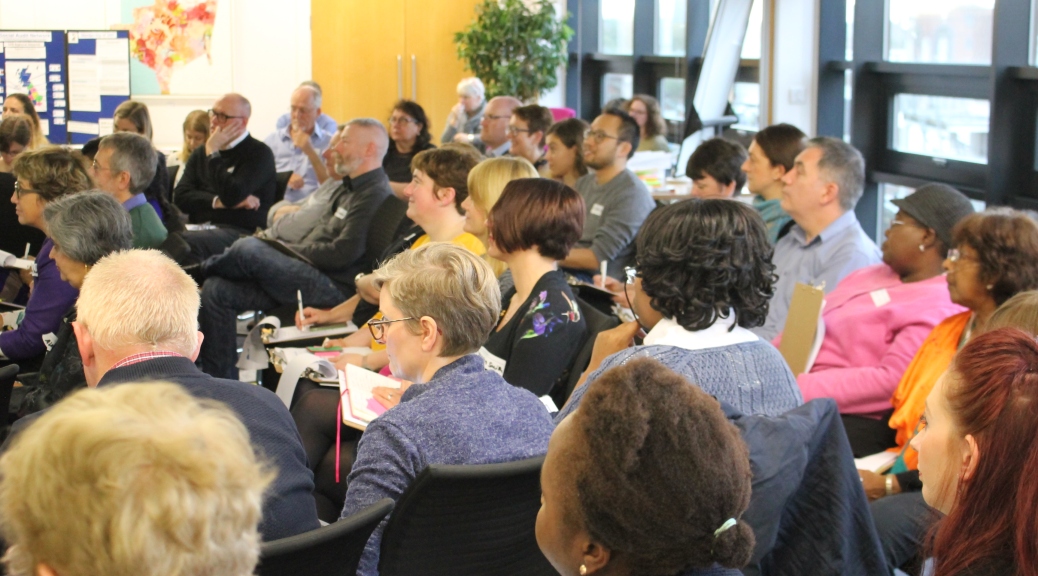In Jonathan Coe’s book ‘Number 11 or Tales that Witness Madness’ one of the characters joins the ‘Institute for Quality Valuation’ that is intent on putting a financial value on practically anything and everything. The character is describing society in general when they say…
“We are dealing with people who have no notion at all that something is important unless you can put a price on it. So rather than have them dismiss…well, human emotion, altogether, as something completely worthless, I think it’s better if someone like me comes along and tries to help them out. Makes some sort of case for the defence. Se we’ve coined a new term – ‘hedonic value’ that might refer to, say, the feeling you get when you look at a beautiful stretch of coastline. And we try to prove that this feeling is actually worth a few thousand pounds…”
This is, of course, fiction and other characters in the book are skeptical at the idea of putting financial value on all things. But it is surprising how in a relatively short period of time the seemingly accepted way of assessing social impact for organisations with a central social purpose is to convert all their social outcomes into a financial figure.
This idea was first introduced into the UK by the new economic foundation who built on and developed pioneering work carried out by the Roberts Enterprise Development Fund in California. It was referred to as Social Return on Investment or SROI. This has led in the further development of the ‘social impact industry’ although there is a whole array of other measures which are forming part of that industry – such as ‘value for money’ figures, extending the role of Cost Benefit Analysis, and so on.
But should we really, as a society, be trying to put a financial value on all things? Certainly, to do this has a function. If you were a policy-maker and trying to decide how to spend restricted financial resources on, say, building more care homes for elderly people or putting the resources into taking care services to people in their own homes, you could then assess the costs, use an ‘impact map’ to identify outcomes, provide them with a financial value and finally work out the most cost effective path.
As a tool to decide on investment, it might work well. Investors like the idea of providing a more tangible value on things that, although valued, have not traditionally had a financial value put on them. Very often investors and funders want to know the ‘bang they get for their buck’ – what amount of ‘social value’ comes from their initial investment expressed in pounds and pence.
But my argument is that if this is what is required by investors then investors should be the ones that calculate the social return on their investment. It does not follow that all social enterprises should be encouraged to measure their success by using an approach that monetises all the outcomes from the social enterprises’ activities.
To go back to Coe’s entertaining book, the same character as before was trying to put a price on the myth (is it a myth?) of the Loch Ness Monster. Belief in the Monster does contribute to the tourist industry and you can translate the myth into some sort of financial figure. I would argue that that should be done by people wanting to sustain the myth and support the tourist industry. We do not put the onus on the Loch ness Monster to carry out an SROI! They, no doubt, are busy being monstrous…
We at the Social Audit Network (SAN) believe that although looking at the social return arising from an input of resources has a place, it is much more helpful for an organisation with a social purpose to keep an account of their performance and to try as much as possible to demonstrate their impact on people, the environment and the society more generally. Since the mid-2000s SAN has engaged with SROI colleagues, discussing and considering our different approaches, undertaken research which helped to shape underpinning principles to this whole area of social impact. However, whilst SROI has its place, for us there are a number of central reasons that make our approaches distinct. I would like to outline them here.
Firstly, context matters. Where a social or community enterprise is working and with whom, can matter tremendously. Therefore, within social accounting the contextual information is encouraged – as it provides background and explains more fully the social need being addressed.
Secondly, by requiring to put a financial figure on all outcomes, there is a tendency to see the solution to addressing the social need as financial. Often people working in the development of communities or in addressing a deficient social need will tell you that putting money into addressing these needs solves only part of the problem. A social need requires social solutions.
Thirdly, social accounting and audit tries to get organisations to address their overall performance against their objectives and does not only ask for the impact an organisation has. For us, it matters what type of structure and values an organisation espouses – and this should be reported on.
Fourthly, there is a danger in having to put a financial figure on all the outcomes in order to come up with a financial ‘return’. We believe that not everything can be valued in financial terms and the extensive use of financial proxies (which is often the case using SROI methodology) can lead to spurious claims and begins to move further away for a ‘real’ or tangible ‘return’.
Fifthly, although developing an ‘impact map’ of inputs, outputs and outcomes can be really helpful for a social enterprise to plan its strategy, carrying out an exercise in looking at the social return does not necessarily help the organisation to perform better. The SROI process is often very specific and focussed – whereas social accounting is more holistic and a broader approach – thus of more directly related to improvement.
Sixthly, the value for an organisation to regularly report on its performance and impact can be hugely beneficial when the organisation does it themselves. Many exercises in calculating the social return on investment are done by consultants and people outside the organisation. The real value of not only proving the impact you might be having, is also in improving through learning more about your own organisation and retaining that knowledge.
So where does this leave us? Certainly, reporting on one’s own organisation in terms of how well the organisation has performed and what kind of impact and degree of social impact one has had, is important. In the future it will inevitably become a requirement – particularly for those organisations in receipt of funding or investment.
The argument that SAN has, is that financialising everything is not a desirable avenue to be going down. A social enterprise should be assessing whether or not it is performing well and what sort of beneficial social change is happening as a result of its activities. But having to stick a financial value on all of that changes seems to us to be crazy.
There are other characters in Coe’s novel who listen to the reasons for monetizing social value and poke fun. I do not advocate this, but feel that putting a financial value on all the intangibles that make up a life is a diversion. Instead we should be supporting organisations that improve people’s lives and livelihoods and to report regularly on their performance and impact – more generally…
Alan Kay Social Audit Network (SAN) www.socialauditnetwork.org.uk
February 2016
Disclaimer: the views included in the above blog are not necessarily the universal views of the all the members of the Social Audit Network











